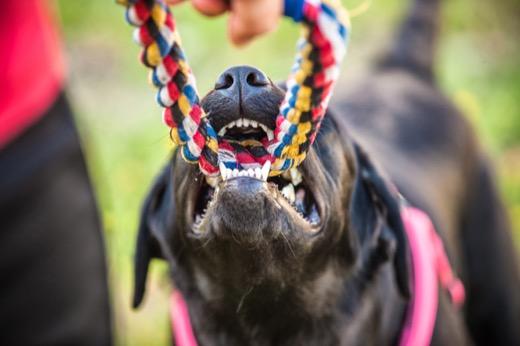Almost everyone loves dogs, and for many people in North Carolina, they are important and beloved members of the family. It is also not uncommon at all for someone to see a dog on the street and to approach that dog with affection and concern for where its owners are. You may have even helped to reunite a pet with their pet parent in the past with no problems at all.
But, what happens when you see a dog, wandering alone, and you try to help, but you get bitten? And what happens when the dog’s owner is there but fails to prevent their pet from attacking you? What do you do if a dog seems to come out of nowhere, attacks you, and causes an injury? Even worse, what happens if someone else’s dog bites or attacks your child?
There are close to five million dog bites and attacks in the United States, yearly. They often cause significant injuries, tremendous medical expense, lasting psychological trauma, and in the very worst situations, fatalities. Yet, dog bite and attack injuries are not handled in the same way that ordinary personal injury claims usually are. There are unique guidelines, regulations, laws, and ordinances, based on where you live or where the dog bite occurred.
Dog Bite Laws in North Carolina
North Carolina has a rule in which a dog can bite someone one time without the owner facing consequences. This is the so-called ‘one bite rule,’ and it exists to protect pet owners from liability in cases where they had no reason to believe that the dog was dangerous. If the dog has already bitten someone in the past, then the owner should know about that and change their behavior accordingly, to ensure that the dog does not have the opportunity to bite or attack anyone else. While there is no hard and fast requirement that the dog has actually bitten someone previously, in order to recover compensation an injured victim must show that the owner or keeper of the dog had prior knowledge of the dog’s dangerous or vicious propensity.
Dog bite laws, around the US and in North Carolina can be very confusing, especially when it comes to pursuing compensation for your damages. Ultimately, it depends on the details of your case, the known or unknown danger of the dog, and in many cases, exactly where you live within the state, since these laws can vary from one local area to another. For example, different areas may have different rules concerning leash laws.
If you or a loved one has been harmed by a dog bite or attack in North Carolina, call Brown Moore & Associates, PLLC to learn more.
When Personal Injury Claims Involve Children
Children are especially vulnerable to dog bites and attacks, as well as various other personal injuries. They are not as capable of escaping from the danger, fighting off an animal, or making the safest decisions when they see strange dogs wandering around, or when approaching dogs who are with their owners and who might seem safe when they are not. For this reason, it is difficult to have a conversation about dog bite personal injury claims without discussing what happens when a child is a victim.
A personal injury claim for a dog bite or other injury that involves a minor actually involves two distinct claims. The first claim is the claim of the child’s parent or parents for the medical expenses incurred. The responsibility for payment of medical expenses of a child under the age of 18 lies with the child’s parent or parents. Thus, the parent or parents of the child have a claim against the dog’s owner or keeper for reimbursement of those medical expenses.
The second claim involves the child’s claim for the physical injury, and distinct elements such as pain and suffering, scarring, and/or permanent injury. A child cannot bring a claim in court, so in theory, the child would have to wait until the age of 18 to bring those claims, and the child would then have three (3) years in which to do so before the expiration of the statute of limitations. There is, however, an alternative way to resolve or litigate a child’s claim before that time. The child’s parent or parents can petition the court to have a Guardian ad Litem appointed who can then pursue the claims on behalf of the child. Any recovery made by the child will then be paid either into the Clerk of Court who would disburse the recovery to a child upon reaching the age of 18, or alternatively, the funds can be placed into an annuity or invested in a trust approved by the court, and payment can be made to the child on or after the age of 18 on terms directed by the child’s parent or parents.
Contact Brown Moore & Associates, PLLC for a Free Consultation After a Dog Bite
If you were the victim of a dog bite or attack, or if your child was the victim of such an incident, then you may have a personal injury claim against the owner of the pet. Remember that the laws are different, depending on where you live, and they can often be confusing and even counterintuitive. For this reason, it can be very difficult to successfully pursue a dog bite personal injury claim on your own. You’ll have questions and concerns that may be challenging to resolve, especially as you focus on recovering from your injuries.
This is where we recommend contacting a determined North Carolina personal injury lawyer for advice, guidance, and legal representation. Call Brown Moore & Associates, PLLC today to schedule your free consultation and learn about the rules and processes associated with pursuing a personal injury claim after a dog bite or attack in North Carolina.

